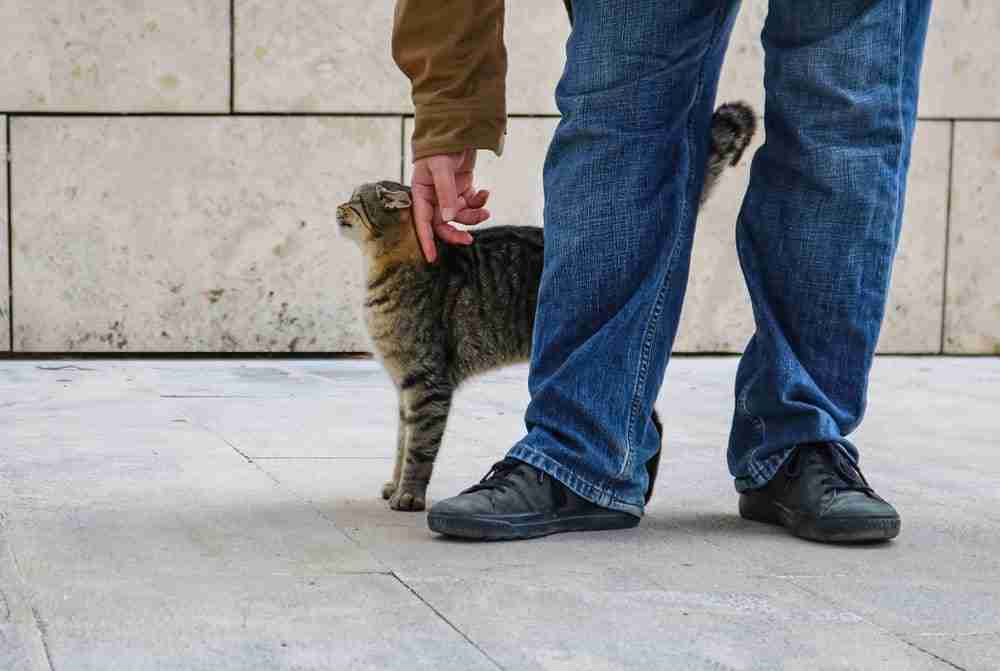Do cats know when you are sad? Can they understand human emotion and act upon it? Yes, they can. Science has proven that they can understand and act on emotion so they do know when you are sad or unhappy. Let’s check it out.
Are you feeling blue? It happens to the best of us from time to time. When we feel sad, we look to other people for support. Cat owners have the luxury of having a furry friend to lean on when things get out of hand in our life.
It’s strange, but it probably seems like your cat knows you’re feeling sad. It’s like it understands you’re going through a hard time and appear to have a sixth sense about your emotional state.
Maybe it’s just you noticing your cat’s loving behavior, or perhaps they do understand your emotions. Whether it’s all a coincidence or your feline companion really is in tune with your feelings, it’s great to have them around in challenging times.
Do Cats Get Emotionally Attached To Their Owners?

It seems that science already researched the answer to the question. A 2019 study from Oregon State University shows most cats form some emotional attachment level to their owners.
The study required owners to leave their cats alone in a room for two minutes and return.
The results were interesting. Cats with secure emotional attachments to their owners explored the room while reference checking for their owners.
The cats with insecure attachments to their owner displayed behavioral avoidance when the owner returned.
So, what does this mean?
Basically, if your cat greets you at the door when you arrive home from the store or the office, they have a secure emotional attachment to your presence. Another sign of secure attachment is if your cat follows you around the house.
Can Cats Recognize Their Owners’ Voice?

Can your cat tell you apart from other people in your house? Do they know how to distinguish voice? According to a 2013 study by Japanese researchers, cats can recognize individual voice patterns and frequencies.
Cats can differentiate between your voice and strangers, and they also recognize shifts in your voice pattern during changes in emotional states.
However, cat’s don’t acknowledge your voice as often as dogs. You might call for them, but it seems like they sit and ignore you. The reality is they acknowledge your call using subtle body language you won’t see in dogs.
For instance, your cat might not turn around when you call, but they might flick their ears or tail towards you.
Do Cat’s Enjoy Spending Time With Their Owners?
Cats are curious animals. As obligate carnivores, it’s in their nature to be inquisitive about everything they encounter. In the wild, this helps them with identifying and stalking prey.
The housecat’s sharp vision and hearing lets them stay on top of their environment. They have excellent situational awareness, and they jump to attention at the slightest unexpected disturbance.
They have an independent spirit, but cats do require emotional contact with you. Some cats can’t be without their owner, while others seem fine to stay away all day doing their own thing.

However, most cats do enjoy spending time with their owner. A study in the Journal of Veterinary Behavior conducted research showing that most cats will prefer spending time in a room with their owner rather than a stranger.
The research shows the cat had a higher engagement with its owner, playing with them rather than the stranger.
Separation Anxiety And Your Feline Companion
Another insight into if cats have an emotional attachment to their owners comes from how they handle separation anxiety.
When you’re away from them for extended periods, cats will start to miss you. Your absence builds “separation anxiety” in your kitty. It’s the same emotional response they experience when first separated from their mother.
As a result, your cat may display compulsive display, over-grooming themselves, or meowing. Some cats misbehave and cause a ruckus in your home, needling your furniture or linens.

How Can A Cat Understand Human Emotions?
So far, we established that cats do experience emotions and a level of attachment to their favorite people. Now we need to build a bridge from their emotional state to ours to see if they recognize emotion in us.
According to a 2015 study on animal cognition, your cat will display different behavior based on whether you’re frowning or smiling.
If you’re smiling, the study notes the cats start purring more, rubbing on their owners. They also want to curl up in your lap if you’re sitting on the couch. If you’re frowning, the cat stays at arm’s length in most cases.
So, according to the research, your cat understands when you’re feeling upset, and it stays away from you. While cats might not know why you’re smiling or frowning, they have enough intelligence to discern the two facial expressions.
The results are strange because it seems cats stay away from when we’re experiencing negative emotions. So, why do they come up to us when we’re sad?
Well, being angry or visibly upset is a negative emotion. Your cat won’t stick around if it feels there is a chance for them to experience injury – they’ll rather watch things from arm’s length.
However, when you’re feeling sad, it’s like cats can sense the difference in your emotional scale. The reality is cats learn from our past emotional behavior, and they get better at identifying your emotional state as they age.
When we’re feeling down, we turn to our cats for support if we’re alone. Years of cuddling up to your cat when you feel down entrench that behavior. So, it’s likely that the cat thinks it’s time to cuddle when you’re feeling blue.
Think about it; you probably play with your cat and speak to her when you’re feeling bad. Your cat likes the attention, and they remember that behavior.
Cats Copy The Emotional Behavior Of Their Owners

Another study shows that cats model their reaction to environmental stimulus based on how you react. Scientists put the cat and owner in a room with a large fan featuring ribbons attached.
When the owner acted like the fan wasn’t in the room, the cat displayed the same behavior. However, when the owner acted afraid of the fan, the cat fled in fear as well.
You’ve probably already noticed this behavior in your cat. Maybe it comes running to your room to check on you when a big thunderstorm starts.
The reality is they aren’t coming to check up on you; they’re looking for confirmation that the storm is nothing to worry about and they are safe.
Can Cats Sense Human Sadness?
From the research done by animal behavioral psychologists, it’s clear that cats understand human emotions, and they know when you’re feeling sad.
However, we may misinterpret their emotions toward us. It turns out cats don’t come over to comfort you; they just follow the behavioral model they know brings them attention and love.
Cats do have an emotional attachment to us, so it’s not to say they’re cold-hearted animals. However, they survive on instinct, not emotions.
The amount of love and affection cats display for their owners varies from cat to cat. It’s similar to humans. Some of us are more in tune with our emotions and surroundings than others.
However, typically, cats are loving pets, and most of them will come over to you with an affectionate head-bump when they see you feeling blue.
